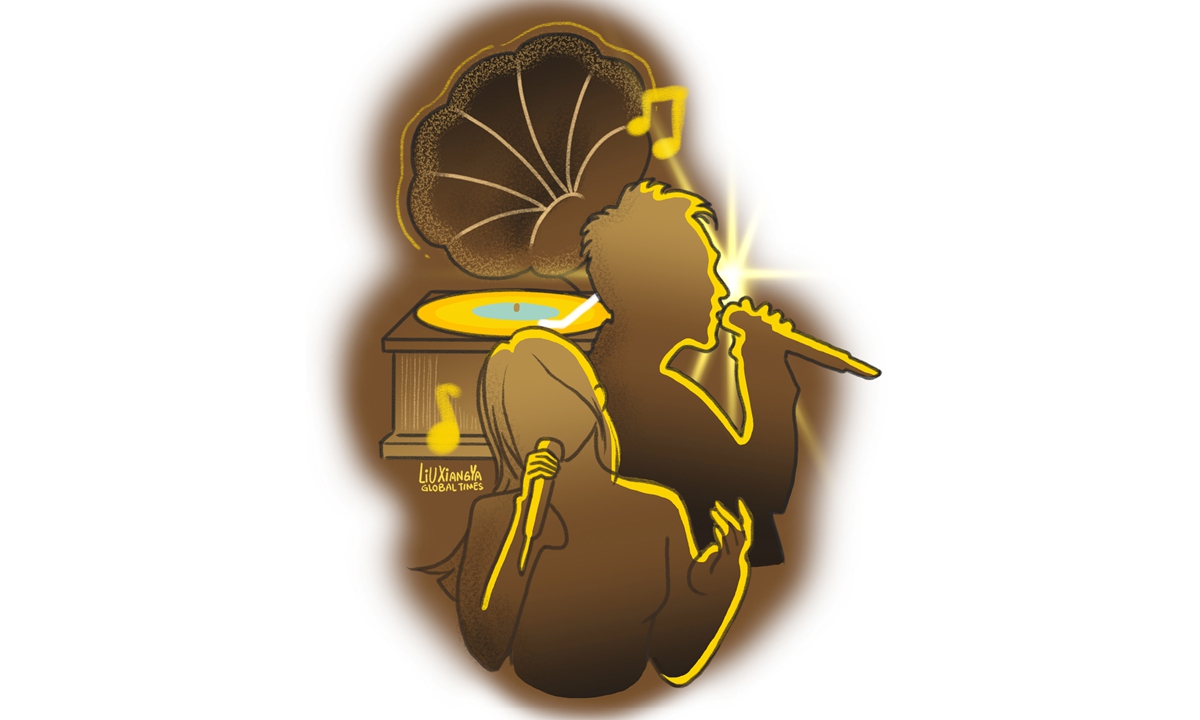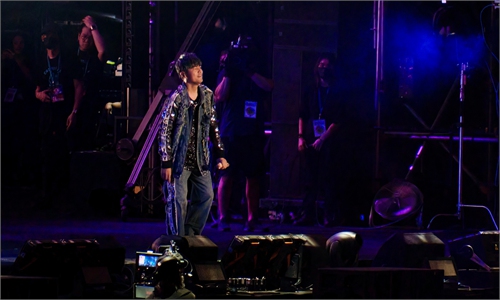ARTS / CULTURE & LEISURE
Singing in harmony can easily shatter manipulative obscurity

Illustration: Liu Xiangya/Global Times
"Don't ask me where I come from, my hometown is far away..."This line from a popular song from the island of Taiwan kicked off the highly anticipated music and cultural program Infinity and Beyond - Taiwan Edition last week. A sequel to the Hong Kong edition in 2022, the show is being broadcast on TV in the Chinese mainland and Taiwan. The program reflects the close bonds between people across the Taiwan Straits.
This song was performed by Ara Kimbo - better known as Hu Defu in Chinese, one of the pioneers of Taiwan folk music - in front of Taiwan island's iconic Sun and Moon Lake. The scene then cuts over to Na Ying, a famous mainland singer, singing the same song in Changsha, the main venue of the show.
Through musical communication, the two sides of the Taiwan Straits became connected and the relationship between the people on both sides grew stronger.
Taking part in the show are eight resident singers, six guest singers and two veteran guests from both sides of the Straits, representing music from the 1980s to the 2010s.
A total of 73 songs originally by Taiwan musicians will be performed during the program.
Over the past few decades, Taiwan pop songs have influenced generations of singers across the Straits. Many of them recalled their love for and pursuit of this music on the program.
Focusing on the music of the island, singers from both sides set up a "dialogue" between their past and present selves and each other while performing this music.
The well-known Taiwan singer Jeff Chang recalled, "When I was in high school, it happened to be the period when Taiwan campus folk songs were developing. I often played guitar while singing songs with some classmates and sometimes we argued about which part we should sing during a harmony."
Like Chang, Na, the first mainland singer to make her debut in Taiwan, personally experienced the charm of Taiwan music. "I have been deeply influenced by Taiwan music, which accompanied me while I was young," she said on the program.
Thanks to the exchanges across the Taiwan Straits that started in 1987, mainlanders born in the 1990s were the first generation to be impacted by Taiwan pop music.
"At that time, the creative music had a big influence on me. From then on, I started to learn it slowly," said Hua Chenyu, a mainland singer born in 1990.
The youngest singer in the show, Ma Jiaqi, said he gained a fondness for Taiwan songs thanks to his mother.
"Whenever my mom cooked, she would play the song 'White Moonlight' by Jeff Chang," he said.
In this sense, we can say that Taiwan music brought people from both sides closer.
"It is true that time and distance can separate people, but there are many things that cannot be separated," said Wang Wei-chung, a producer of Taiwan TV programs.
Speaking to the show's organizer, Tsiu Tng-tsip, a professor at Xiamen University in East China's Fujian Province who used to teach in Taiwan, noted that "the culture of Taiwan is of the Southern Min, which is part of our Chinese culture."
It is for this reason that the Chinese mainland has shown its utmost sincerity toward Taiwan.
At the recent two sessions, the mainland reiterated its stance that it will do its best to achieve the reunification of the motherland.
Under these circumstances, this program is really a good opportunity to promote understanding and strengthen bonds between the two sides of the Taiwan Straits. This is the common wish of all the people on both sides that no one can obstruct.

